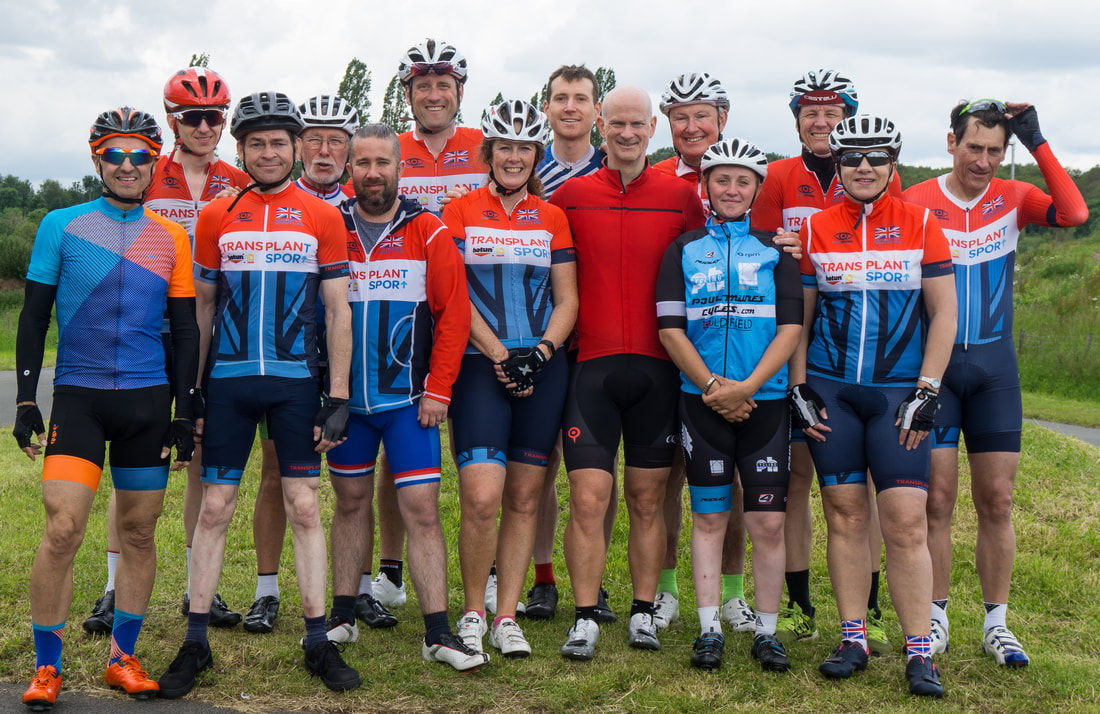|
Organisations invest a lot of time and money in team building and leadership courses. In business, these tend to be either delivered in the classroom, building giant Jenga or outside making rafts to navigate a way through treacherous, if imaginary, waters. I’ve done a fair few or these over the years and frankly I’ve loved every minute of them. Maybe it’s the biscuits. As for me, alongside my career in business and eating biscuits, I have coached the Great Britain Transplant Cycling team for the last 10 years. A group of riders all of whom have had life supporting organ transplants and use bike racing at national and international level to increase awareness of organ donation and transplantation. It’s fair to say they are highly motivated, courageous individuals. Their most recent outing at the World Transplant Games in Newcastle/Gateshead, August 2019, a team of 34 riders yielded 32 medals, 13 of them gold. I’d call that high performing. So, before I get the Lego out or start blindfolding colleagues and persuading them to fall backwards into trusting arms, what team building analogies can be drawn from coaching this remarkable bunch? In business or sport, how does one go about developing a high performing team? Emphasise the similarities shared by the team members This is straight forward with the cycling team, amongst many other things, they ride bikes, they're all British and have had an organ transplant – this means they have shared traumas, experiences and back stories. What have your team shared? What makes them similar despite - perhaps even because of - their diversity? Drawing out and emphasising similarities starts to bring a team together. I once led a team who all changed the ring tone on their phones to ‘Can’t Take My Eyes Off of You’ … BAA DA, BAA DAP BAA DA DAT DAAA! Drove everybody nuts but you knew who was in the team. And never underestimate the power or a uniform. Or some uniformity. The team must have a clear shared goal Winning medals individually and as a team is a clear enough for my lot although not all the team will win medals, and the team know that, so maybe the goal is to perform to best of your ability – to try as hard as you can – you can do no more. If you’re a veteran of multiple rounds of goal setting and performance reviews in business you’ll probably know about making your goals SMART. In business, completion of a project to cost, quality and on time are common but you do need to be specific about how much, how you measure quality and when it’s going to be completed. How about making goals challenging, interesting and, easier in sport than business, fun? Having a goal just because it’s measurable is not good enough. Goals need to drive the right behaviour. That’s where their real power of goals lies. The team needs something to fight against A little external pressure pushes teams together. A common enemy or a rivalry. It might be another team, organisation or even the Finance Department. Something the team need to work on collaboratively to overcome. A little conflict, competitive pressure or shared adversity can be a positive bonding influence. Rich Smith has coached the GB Transplant Cycling team for 10 years, is a British Cycling qualified Level 3 coach, a mature psychology student and has 30 years’ experience working in senior roles for Barclays, HSBC, British Waterways and National Grid Property. Whilst eating biscuits.
0 Comments
Leave a Reply. |
AuthorThe ramblings of a cycling coach... Archives
May 2024
Categories |
|
© COPYRIGHT 2022. ALL RIGHTS RESERVED.
|

 RSS Feed
RSS Feed
